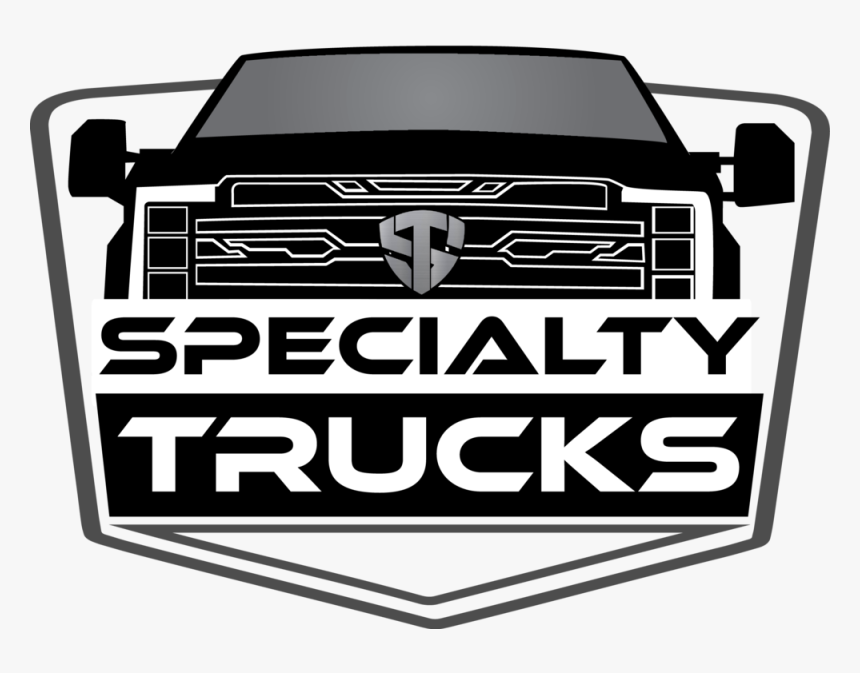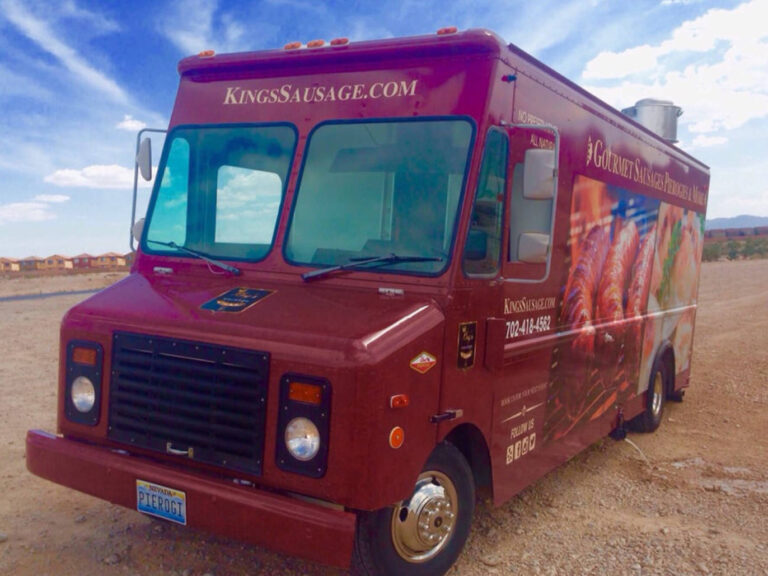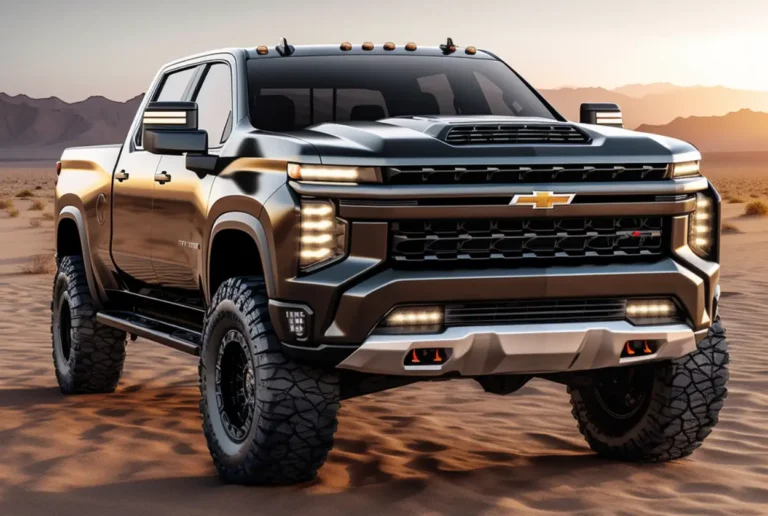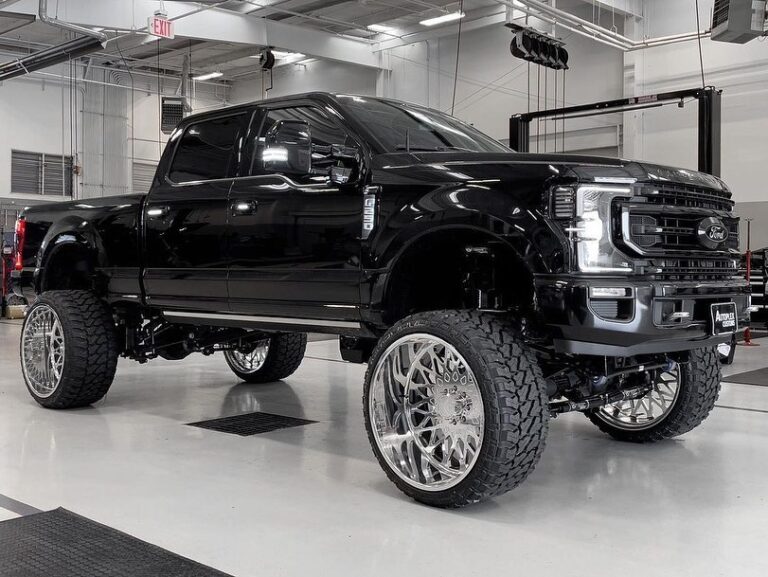Specialty Trucks For Sale: Your Comprehensive Guide to Acquiring Specialized Assets
Specialty Trucks For Sale: Your Comprehensive Guide to Acquiring Specialized Assets cars.truckstrend.com
In the diverse landscape of modern industry, not all trucks are created equal. Beyond the ubiquitous pickup or the standard semi-trailer, lies a fascinating and essential category of vehicles known as specialty trucks. These are the workhorses engineered for specific, often demanding, tasks – from lifting colossal loads and extinguishing fires to compacting refuse and laying down asphalt. For businesses, municipalities, and even individuals with highly particular needs, acquiring the right specialty truck isn’t just a purchase; it’s a strategic investment that can define operational efficiency, safety, and profitability.
This comprehensive guide delves into the world of specialty trucks for sale, offering insights, practical advice, and a roadmap for navigating this unique market. Whether you’re a seasoned fleet manager, a budding entrepreneur, or simply curious about these incredible machines, understanding the nuances of buying and selling specialty trucks is paramount to making informed decisions.
Specialty Trucks For Sale: Your Comprehensive Guide to Acquiring Specialized Assets
What Defines a Specialty Truck? Purpose-Built Powerhouses
A specialty truck distinguishes itself by being purpose-built or significantly modified to perform a specific function that goes beyond general transportation. Unlike standard commercial vehicles, these trucks often integrate complex hydraulic systems, specialized bodies, advanced control mechanisms, and unique attachments directly onto a heavy-duty chassis. Their design prioritates functionality and performance in a particular niche over general cargo hauling.
Common examples of specialty trucks include:
- Construction & Industrial: Dump trucks, concrete mixers, boom trucks, crane trucks, flatbed trucks with specialized equipment, vacuum trucks, water trucks.
- Municipal & Utility: Refuse (garbage) trucks, street sweepers, snow plows, utility service trucks (bucket trucks, digger derricks), sewer cleaning trucks.
- Emergency Services: Fire trucks (pumpers, ladders, rescues), ambulances, mobile command centers.
- Logistics & Recovery: Tow trucks (wreckers), car carriers, heavy-haul transporters.
- Agricultural & Forestry: Logging trucks, fertilizer spreaders (though often tractor-based, some truck-mounted).
- Entertainment & Broadcast: Mobile stage trucks, production trailers, satellite uplink trucks.
Each of these categories represents a highly engineered solution to a distinct operational challenge, making them indispensable assets in their respective fields.
Why Choose a Specialty Truck? Benefits & Applications
The decision to invest in a specialty truck is driven by a clear need for optimized performance, increased productivity, and enhanced safety in specific applications. The benefits extend far beyond mere transportation:
- Enhanced Efficiency: A purpose-built truck performs its designated task far more efficiently than a general-purpose vehicle attempting the same job. For example, a concrete mixer delivers precise quantities of ready-mix directly to a site, saving time and labor compared to mixing on-site.
- Increased Productivity: Integrated equipment and specialized designs streamline workflows. A boom truck can lift and place heavy materials quickly, accelerating construction projects. A refuse truck’s compaction system allows it to collect more waste per route.
- Improved Safety: Many specialty trucks incorporate safety features and designs specific to their operation, reducing risks associated with heavy lifting, hazardous material handling, or working at height.
- Regulatory Compliance: Certain operations require specific vehicle types or modifications to meet safety, environmental, or operational regulations. Specialty trucks are often designed with these compliance standards in mind.
- Cost Savings in the Long Run: While the initial investment can be substantial, the long-term savings from increased efficiency, reduced labor, and fewer accidents often justify the cost. Downtime is minimized when the right tool is used for the job.
From building skyscrapers and maintaining city infrastructure to responding to emergencies and managing waste, specialty trucks are the backbone of countless essential services and industries.
Navigating the Market: Where to Find Specialty Trucks For Sale
The market for specialty trucks is diverse, offering options for new, used, and even custom-built units. Knowing where to look is the first step in a successful acquisition:
- Authorized Dealerships: For new specialty trucks, authorized dealers are your primary source. They offer the latest models, manufacturer warranties, financing options, and often have service departments equipped to handle these complex vehicles. Many also sell certified used trucks.
- Online Marketplaces & Aggregators: Websites like TruckPaper.com, CommercialTruckTrader.com, MyLittleSalesman.com, and eBay Motors list thousands of used specialty trucks from private sellers, dealers, and brokers across the country. These platforms allow for extensive filtering by type, make, model, year, and price.
- Specialized Auction Houses: Companies like Ritchie Bros. Auctioneers, IronPlanet, and GovPlanet regularly hold auctions featuring a wide array of used construction, municipal, and utility equipment, including specialty trucks. Government surplus auctions can also be a source for well-maintained, albeit often older, vehicles.
- Equipment Brokers & Consultants: For very specific or hard-to-find trucks, a broker can leverage their network to locate suitable vehicles, negotiate prices, and assist with logistics.
- Direct from Businesses/Municipalities: Companies upgrading their fleets or municipalities phasing out older equipment often sell directly. Checking local government websites or industry forums can sometimes reveal these opportunities.
- Manufacturer Websites: Many specialty truck manufacturers have "for sale" sections on their websites for new or certified pre-owned units.
Key Considerations Before Buying a Specialty Truck
Acquiring a specialty truck requires careful consideration of numerous factors to ensure the vehicle meets your operational needs and budget.
- Define Your Exact Needs: What specific tasks will the truck perform? What capacity, reach, payload, or power output is required? Consider future needs as well. Over-specifying can lead to unnecessary costs, while under-specifying can lead to inefficiency or safety issues.
- Budget & Financing: Specialty trucks can range from tens of thousands to well over a million dollars. Determine your budget, including not just the purchase price but also estimated operational costs (fuel, insurance, maintenance, parts). Explore financing options, including commercial loans, leases, and lines of credit, which are often available through dealerships or specialized lenders.
- New vs. Used:
- New: Offers the latest technology, full warranties, and customization options. Higher initial cost but lower immediate maintenance concerns.
- Used: Significant cost savings, quicker availability. Requires thorough inspection and understanding of the truck’s history. Maintenance costs can be higher down the line.
- Condition & Maintenance History (Crucial for Used): For used trucks, a comprehensive pre-purchase inspection by a qualified, independent mechanic specializing in heavy equipment is non-negotiable. Request detailed maintenance records, service logs, and any repair history. Check for signs of excessive wear, rust, leaks, or structural damage. Pay close attention to the specialized equipment (crane, pump, mixer, etc.) as these components are often the most expensive to repair or replace.
- Specifications & Features: Beyond the basic type, delve into the specifics: engine type and horsepower, transmission, axle configuration, gross vehicle weight rating (GVWR), specialized equipment capacity (e.g., crane lifting capacity, pump GPM), power take-off (PTO) systems, and any required auxiliary features.
- Regulatory Compliance & Licensing: Research all applicable federal, state, and local regulations. This includes Department of Transportation (DOT) requirements, emissions standards, weight limits, specialized equipment certifications (e.g., crane operator licenses), and potentially specific operating permits. Ensure the truck meets all legal requirements for your intended use.
- Operational Costs & Parts Availability: Specialty trucks often have higher fuel consumption, insurance premiums, and specialized maintenance requirements. Research the availability and cost of replacement parts, especially for older or less common models.
- Resale Value: While a long-term asset, consider the potential resale value. Trucks from reputable manufacturers with common specifications tend to hold their value better than highly customized or obscure models.
The Buying Process: A Step-by-Step Guide
Once you’ve identified your needs and explored the market, follow these steps for a smooth acquisition:
- Define Detailed Requirements & Budget: Be precise about the truck’s purpose, required specifications, and your maximum expenditure.
- Research & Identify Potential Candidates: Use online platforms, dealer networks, and auctions to compile a shortlist of trucks that meet your criteria.
- Contact Sellers & Gather Information: Request detailed photos, specifications, maintenance records, and any relevant documentation. Ask targeted questions about the truck’s history, usage, and any known issues.
- Schedule Inspections: For any serious contender, arrange for a physical inspection. If buying used, hire an independent, certified heavy-equipment mechanic to perform a thorough pre-purchase inspection. Test all specialized equipment rigorously.
- Negotiate Price & Terms: Based on your research, inspection findings, and market value, negotiate the purchase price. Discuss payment terms, warranty (if applicable), and any included accessories or services.
- Secure Financing: If not paying cash, finalize your financing arrangements with a lender.
- Complete Paperwork: Ensure all necessary legal documents are in order, including the bill of sale, title transfer, registration, and any required permits. Verify the VIN matches the title.
- Arrange Transportation: If the truck is not local, plan for its transport. This may involve hiring a specialized heavy-haul carrier.
- Post-Purchase Checks: Once acquired, perform a final once-over, update registration, and ensure all operators are properly trained and licensed for the specific vehicle and its equipment.
Challenges and Solutions in Specialty Truck Acquisition
While rewarding, the process of acquiring a specialty truck can present unique challenges:
- High Initial Cost:
- Solution: Explore the used market for significant savings. Consider leasing options or specialized commercial financing tailored to heavy equipment.
- Finding Specific Models: Highly specialized trucks can be rare.
- Solution: Utilize equipment brokers, network within your industry, and set up alerts on major online marketplaces. Be prepared to travel for the right truck.
- Assessing True Condition & Value (especially used): Without expertise, it’s hard to gauge the remaining lifespan or potential repair costs.
- Solution: Always invest in a professional, independent pre-purchase inspection. Research market comparables thoroughly.
- Maintenance & Parts Availability: Unique components can be difficult or expensive to source.
- Solution: Prioritize trucks from reputable manufacturers with established dealer networks and good parts availability. Factor potential future maintenance costs into your budget.
- Regulatory Complexity: Navigating licensing, weight limits, and operational permits.
- Solution: Consult with industry experts, legal counsel specializing in transportation, or your local DOT office to ensure full compliance before purchase and operation.
Sample Price Guide: Specialty Trucks For Sale (Estimates Only)
Prices for specialty trucks vary wildly based on type, age, condition, manufacturer, specific features, and regional market demand. The table below provides highly generalized estimated ranges for common specialty truck types. These figures are for illustrative purposes and should not be taken as definitive quotes. Always obtain specific quotes and perform thorough due diligence.
| Truck Type | New Price Range (Estimated) | Used Price Range (Estimated) | Key Factors Affecting Price |
|---|---|---|---|
| Dump Truck | $120,000 – $300,000+ | $30,000 – $150,000+ | Axle configuration, dump body capacity, engine HP, mileage, condition |
| Concrete Mixer | $150,000 – $400,000+ | $40,000 – $200,000+ | Drum capacity, PTO type, engine, mileage, condition, mixer maintenance |
| Boom Truck / Crane Truck | $200,000 – $800,000+ | $70,000 – $400,000+ | Crane lifting capacity, boom length, outriggers, chassis, age, certifications |
| Refuse Truck | $250,000 – $500,000+ | $50,000 – $250,000+ | Compaction type (front/side/rear loader), body size, engine, mileage |
| Fire Truck (Pumper) | $500,000 – $1,000,000+ | $100,000 – $500,000+ | Pump capacity, tank size, ladder type, equipment, age, maintenance |
| Tow Truck (Heavy-Duty) | $150,000 – $400,000+ | $50,000 – $200,000+ | Wrecker capacity, boom type, chassis, mileage, additional features |
| Utility Truck (Bucket/Digger Derrick) | $100,000 – $350,000+ | $40,000 – $180,000+ | Boom/derrick reach, lifting capacity, insulated/non-insulated, chassis, age |
| Vacuum Truck | $180,000 – $500,000+ | $60,000 – $250,000+ | Tank capacity, pump type/power, material compatibility, age, condition |
Frequently Asked Questions (FAQ) About Specialty Trucks For Sale
Q1: What exactly defines a "specialty truck"?
A1: A specialty truck is a vehicle specifically designed or heavily modified to perform a particular function beyond general cargo transport. This often involves integrated equipment like cranes, pumps, compactors, or unique body designs for specific industries like construction, waste management, or emergency services.
Q2: Is it better to buy a new or used specialty truck?
A2: It depends on your budget, immediate needs, and risk tolerance. New trucks offer warranties, the latest technology, and customization, but at a higher cost. Used trucks offer significant cost savings and quicker availability but require more thorough inspection and may incur higher maintenance costs over time.
Q3: How do I finance a specialty truck?
A3: Financing options include traditional commercial loans from banks, equipment financing through specialized lenders, or leasing agreements. Many dealerships also offer in-house financing programs. Your creditworthiness, the truck’s age, and its value will influence terms.
Q4: What crucial inspections should I conduct before buying a used specialty truck?
A4: A comprehensive pre-purchase inspection by an independent, certified mechanic specializing in heavy equipment is vital. This should include checking the engine, transmission, brakes, tires, chassis for rust/damage, and critically, all specialized equipment (hydraulics, pumps, booms, electrical systems). Request and review all maintenance records.
Q5: Where can I find parts for older or less common specialty trucks?
A5: Start with the original equipment manufacturer (OEM) dealer network. If parts are obsolete, explore aftermarket suppliers, specialized heavy equipment salvage yards, or online forums and communities dedicated to your truck type, where owners often share sourcing information.
Q6: Do specialty trucks require special licensing to operate?
A6: Often, yes. Depending on the truck’s Gross Vehicle Weight Rating (GVWR), the type of specialized equipment it has (e.g., operating a crane), and the cargo it carries, you or your operators may need a Commercial Driver’s License (CDL) with specific endorsements (e.g., hazmat, air brakes, tank). Always check federal, state, and local regulations.
Q7: What is the average lifespan of a specialty truck?
A7: The lifespan varies greatly depending on the truck type, manufacturer, how it’s used, and maintenance. Well-maintained specialty trucks can last 15-25 years or more, often accumulating hundreds of thousands of miles or thousands of operating hours on their specialized equipment. Regular maintenance is key to longevity.
Conclusion: A Strategic Investment
Acquiring a specialty truck is a significant decision that requires meticulous research, careful planning, and a clear understanding of your operational needs. These powerful, purpose-built machines are more than just vehicles; they are critical assets that can drive productivity, enhance safety, and ultimately contribute to the success of your business or organization.
By thoroughly defining your requirements, navigating the diverse market, diligently inspecting potential purchases, and understanding the associated costs and regulations, you can make an informed choice that ensures your investment pays dividends for years to come. A well-chosen specialty truck is not just a purchase; it’s a strategic enhancement to your capabilities, empowering you to tackle specialized tasks with efficiency and confidence.








